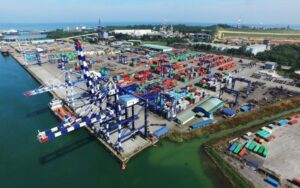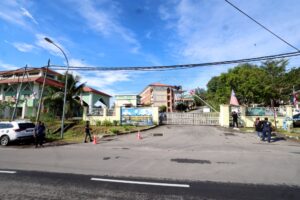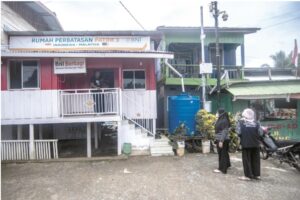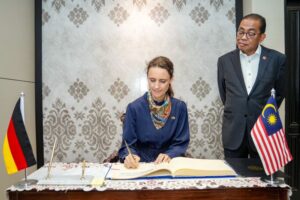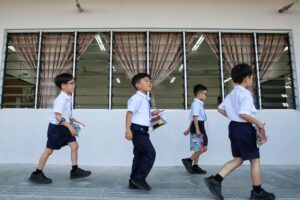KUCHING, Aug 3 — The government is studying the possibility of implementing nuclear energy projects in Peninsular Malaysia and Sabah due to the high demand for stable energy in both regions, says Deputy Prime Minister Datuk Seri Fadillah Yusof.
Fadillah, who is also the Minister of Energy Transition and Water Transformation (PETRA), said the suitability of locations near water sources such as rivers, seas or large lakes was a key consideration in the ongoing feasibility study for nuclear plant cooling systems.
“For Peninsular Malaysia and Sabah, nuclear projects are viable because what we need now is a constant energy source.
“In Sarawak, there is no issue because hydropower already contributes almost 70 per cent, while in Peninsular Malaysia and Sabah, hydropower resources are not as abundant due to their heavier reliance on gas and diesel, which are still based on non-clean sources,” he told reporters after officiating the MUSCS Pickleball Arena here today.
He said no final decisions had been made regarding the technology, location or capacity to be used, as the government was still conducting a comprehensive study coordinated by MyPower Corporation, the implementing agency of the National Nuclear Energy Programme.
Fadillah said in addition to technical requirements, the study would also examine the most suitable technology, development of local expertise, safety aspects, environmental impact, and the overall financing capability of the project.
“All of these aspects must be carefully assessed. Only when we are satisfied and the public accepts the use of nuclear energy will we proceed to finalise the implementation… our projection is that the earliest it could be implemented is within the next 10 years,” he said.
He added that the government was also exploring new technologies such as small modular reactors (SMRs) and was planning several working visits abroad to identify the best, safest, and most cost-effective technologies for Malaysia.
“That’s why I visited Russia and France, and God willing, I will also visit South Korea, Japan, China, and finally the United States,” he said.
Yesterday, PETRA said in a statement that nuclear energy development was being studied as a clean, stable and competitive energy source for Malaysia’s future, with a gradual approach based on International Atomic Energy Agency (IAEA) guidelines. — Bernama

